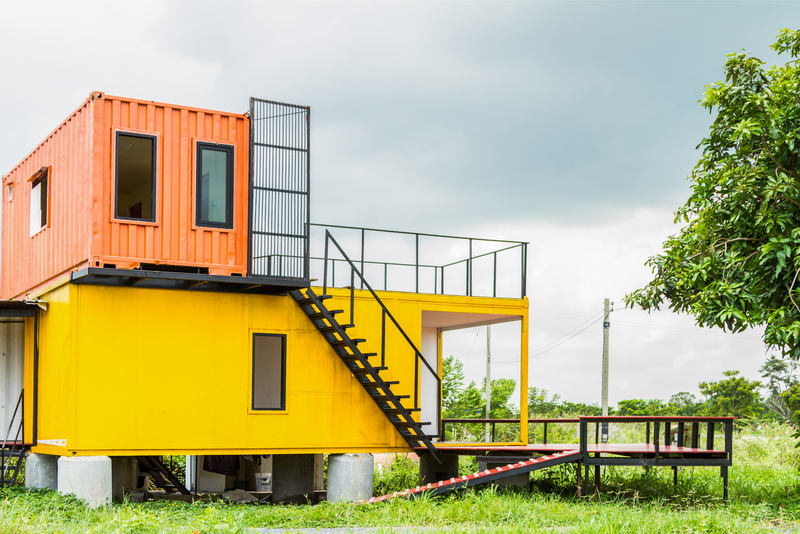Sustainable Living: Steps to Curb Waste at Home
Sustainable living is a lifestyle choice that not only benefits the planet but also promotes healthier households and communities. Making conscious decisions about how we consume, reuse, and dispose of resources can significantly reduce our home's environmental footprint. In this comprehensive guide, we'll explore actionable and practical steps to curb waste at home, empowering you to live more sustainably and efficiently.
Why Sustainable Living Matters
Adopting sustainable practices at home is more crucial than ever. The average household generates a significant amount of waste--much of which ends up in landfills, contributing to pollution and greenhouse gas emissions. By implementing waste reduction techniques, we not only conserve natural resources but also save money and build healthier living environments.
Understanding Household Waste
Before diving into steps to live more sustainably, it's important to understand where most waste comes from in our homes:
- Food waste: Unused or spoiled foods discarded into trash.
- Single-use plastics: Bottles, wrappers, cutlery, and bags used once and thrown away.
- Packing materials: Cardboard, bubble wrap, and excessive packaging from shipments.
- Unnecessary purchases: Products we buy but rarely use leading to wasteful disposal.
- Expired household products: Cleaners, cosmetics, and medicines disposed past expiration.

1. Conduct a Home Waste Audit
The first step to a sustainable home is understanding your current waste habits. Start with a simple waste audit:
- Collect all your trash for a week.
- Sort items into categories--food, plastic, paper, electronics, hazardous items.
- Note which items are most frequent in your garbage.
By identifying the biggest contributors to your household's waste, you can target the most impactful changes.
2. Reduce Food Waste Effectively
Globally, roughly one-third of food produced for human consumption is lost or wasted. Tackling food waste is one of the most effective steps towards more sustainable living at home.
Smart Shopping
- Plan meals: Create a weekly meal plan and shopping list to avoid impulse purchases.
- Buy only what you need: Be realistic about quantities, especially for perishable items.
- Shop seasonally: Choose local, in-season produce, which tends to last longer and is less wasteful.
Food Storage Tips
- Understand expiration dates: Use the "best by" and "use by" labels as guidelines, not absolute rules--many foods remain edible longer than labeled.
- Store smartly: Use airtight containers and proper fridge organization to prolong food freshness.
- Freeze surplus: If you can't use items before they spoil, freeze them for later use.
Creative Cooking
- Transform leftovers into new meals such as soups, stir-fries, or casseroles.
- Use up vegetable scraps in homemade stocks or compost them.
3. Choose Reusable Over Disposable
A cornerstone of sustainable household habits is opting for reusable items. Here are easy swaps:
- Reusable shopping bags instead of single-use plastic bags.
- Stainless steel or glass water bottles over disposable plastic bottles.
- Cloth napkins and kitchen towels to replace paper products.
- Wax wraps or silicone lids instead of plastic wrap for food storage.
- Bulk shopping: Buy pantry foods in bulk and store them in reusable containers.
These changes curb household waste and decrease your demand for single-use products.
4. Compost Organic Waste
A significant portion of household waste is biodegradable, such as food scraps, coffee grounds, and yard clippings. Composting these materials creates nutrient-rich soil and diverts waste from landfills.
- Set up a compost bin or pile in your backyard, or use indoor composters if you're short on space.
- Compostable items: Fruit and vegetable peels, eggshells, coffee grounds, shredded newspaper, yard waste.
- Items not to compost: Meat, dairy, oils, or diseased plants, which can attract pests and harbor pathogens.
Composting is a simple, natural way to turn household waste into a valuable resource for your garden or community green spaces.
5. Mindful Purchasing Habits
Sustainable living starts before waste is even created--at the point of purchase. Here's how to buy better:
- Choose products with minimal packaging.
- Support local producers and businesses to minimize transportation emissions and packaging waste.
- Opt for durable goods over cheaply-made, disposable alternatives.
- Before buying, ask yourself if you truly need the item. Delay purchases to avoid impulse buys.
By practicing intentional consumption, you both reduce waste at its source and help shift demand towards sustainable products.
6. Recycle Responsibly
Recycling diverts materials from landfills, but it's only effective when done correctly. Many common items are still improperly recycled.
- Learn your local recycling rules, as accepted materials vary by region.
- Rinse recyclables to prevent contamination.
- Avoid wish-cycling--don't recycle items you're unsure about.
- Recycle batteries, electronics, and hazardous materials through specialized services.
Proper recycling ensures that valuable resources like glass, aluminum, and paper are reused efficiently in manufacturing.
7. Reuse, Repurpose & Repair
Get creative with what you already own! Embrace the three R's of sustainable living:
Reuse
- Repurpose glass jars as storage containers or vases.
- Turn old t-shirts into cleaning rags.
Repair
- Fix broken electronics, furniture, or clothing before replacing them.
- Explore local repair cafes, which offer tools and assistance.
Repurpose
- Transform shipping boxes into toy houses or organizers.
- Create crafts from packaging materials or scraps.
8. Adopt Sustainable Cleaning Habits
Many commercial cleaning products contain toxic chemicals and excessive packaging. Shifting to eco-friendly solutions cuts waste and creates safer indoor environments.
- Make your own cleaning products with simple ingredients like vinegar, baking soda, and lemon.
- Buy in bulk or concentrate to reduce packaging waste.
- Use reusable cleaning pads, mops, and dusters instead of single-use disposables.
9. Sustainable Laundry Practices
Laundry can be a major source of waste through microplastic shedding, detergent usage, and energy consumption. Increase the sustainability of your laundry routine by:
- Washing only full loads.
- Using cold water when possible to save energy.
- Choosing eco-friendly detergents avoiding phosphates and plastic packaging.
- Line drying clothes to avoid dryer energy use and microplastic release.
- Investing in a microfiber filter for your washing machine.
10. Green Your Bathroom Routine
The bathroom is another area ripe for waste reduction. Simple switches include:
- Bamboo toothbrushes over plastic alternatives.
- Bar soap instead of bottled body wash.
- Reusable razors or safety razors.
- Refillable shampoo and conditioner bottles.
- Choose recycled or bamboo toilet paper.
11. Get the Whole Family Involved
Creating a sustainable household is more successful when everyone participates. Foster eco-conscious habits by:
- Setting up recycling and compost stations that are easy for kids to use.
- Playing zero-waste challenges to make reducing waste fun.
- Involving children in shopping, meal planning, and gardening.
- Sharing responsibilities for sustainable practices.

12. Educate & Inspire Your Community
Your actions can inspire friends and neighbors to adopt sustainable living habits too. Share your journey:
- Host a clothing or item swap with neighbors.
- Share tips and success stories on social media.
- Support local initiatives and environmental groups.
Sustainable Living Starts At Home
Sustainable living isn't about drastic, immediate changes, but rather consistent, mindful habits that add up over time. By curbing waste at home through practical steps--auditing, reducing, reusing, composting, and mindful purchasing--you can lower your environmental impact and lead a healthier, more fulfilling life. Start small and celebrate progress knowing that every little change contributes to a greener future.
Remember:
- Sustainable habits create lasting change.
- Every household can make a difference.
- Living with less waste is rewarding for both you and the planet.
Begin your journey toward sustainable living today. Small steps at home have the power to transform our world for generations to come.
```